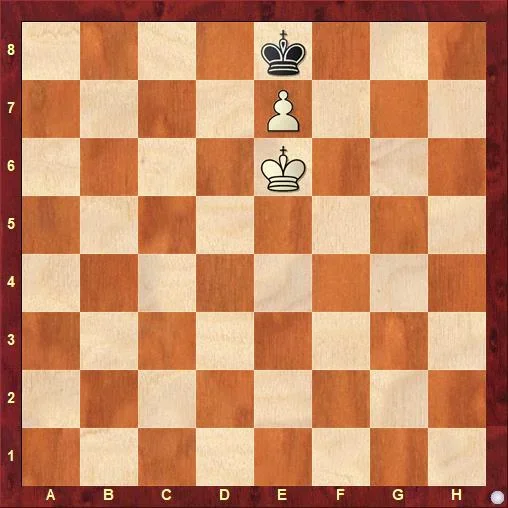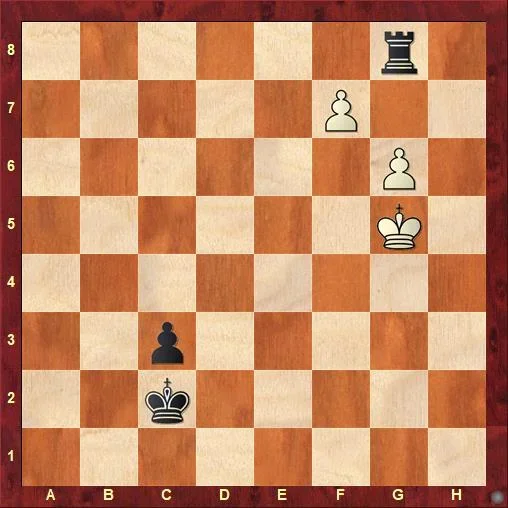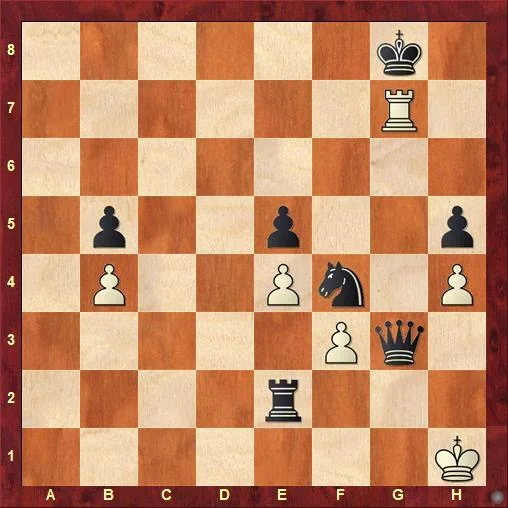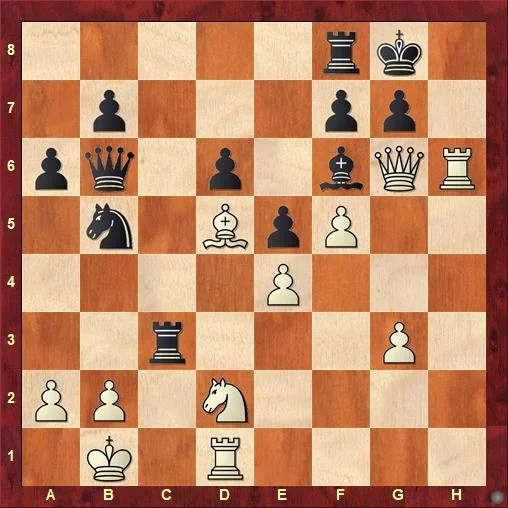
The question of whether chess was invented or evolved from earlier games may never be settled. Part of the discussion is semantic, since evolution and invention are two sides of the same coin! Evolution is a series of new inventions that build upon or combine earlier designs. Inventions are steps in evolution.
Chess rules and customs, even today, are constantly evolving. Through research into old chess literature, I've made some original discoveries regarding how modern rules and customs have evolved to reach their current state. This series will explore some specific rule changes for chess that have evolved over the past few centuries.
DRAWS

How did the concept of a draw evolve?
In 1614, Arthur Saul published The Famous Game of Chesse-Play, which influenced later terminology and rules. In a lengthy passage, Saul notes:
Many men on both sides were lost...so that the game were indifferent, and then I say, one of the gamesters should give over the game and draw the stake...
In other words: in such a simplified game with no winning prospects for either side, either player might draw the stakes -- that is, declare the game a no contest. To avoid abuse of such a unilateral decision, the opponent could require that the game continue, but only if he bet to win at additional stakes.
I was struck with the possibility that Saul's phrase draw the stakes might be the origin of the term draw in chess. The Oxford English Dictionary states that, before Saul's time, the term draw the stakes referred to sporting situations in which one withdrew either stakes or entry from a competition. Examples are a horse race being drawn by consent in 1698, and of bettors being advised to draw stakes in 1708.

I also encountered the same theory in a different sport, discovered in the Dictionary of Cricket by Michael Rundell, which states:
In fact, the word draw itself, in its sporting sense, derives from the practice of drawing or withdrawing the bets made on a contest when its issue was undecided.
Examples given are cricket matches from the 1730s being called a drawn battle when the match couldn't be finished, and again when the teams drew stakes after reaching a tie score.
By the late 1700s, chess books were using the term draw in a more modern sense. Robert Lambe's History of Chess used the term drawn game in 1764, and the expression showed up again in Miscellanies by Richard Twiss in 1787. Around 1800, an unpublished manuscript titled The War of the Chessmen described Giuoco Patto as:
Drawn game. An ending in which the combatants lack the force or else the knowledge with which to give mate.
The earliest clear statement directly mentioning players agreeing to a draw I found in a book titled Studies of Chess from 1805, which said:
Of a Drawn game: If it not be superfluous to put it anywhere it must be added here, that whenever from the greatness of the loss on each side (the more potent pieces, and those capable of becoming so, being gone) or from any other cause, it becomes certain that neither party can give the other check-mate; the game is to be discontinued as insipid and useless, the players consenting to draw their pieces to court decision in a new party.
By the early 1800s, draws were being defined mainly as simplified endgames where forcing a win was impossible, but by 1838, chess authors were recognizing that draws might be agreed several ways. Examples included when finding a win might be possible, yet both sides act on the defensive; neither party chooses to attack his adversary; or when the player attempting to win is pretty sure to overreach himself, and lose.

Yet draws were regarded as non-games, meant to be replayed, keeping with Saul's original idea that to draw stakes meant to leave the contest unfinished. A New Treatise on Chess in 1841 described a drawn game as being in law no game, adding: Drawn games of every description count for nothing.
That began to change in the 1860s, when the practice of scoring draws as half-points was occurring in tournaments. Soon thereafter, the issue of players engaging in pre-arranged or non-competitive draws for the sake of tournament points became a concern and contributed to early criticism of chess professionalism.

Click here to jump to Part Two: White Moves First! in John McCrary's historical series on the evolution of modern chess rules.
Categories
Archives
- January 2026 (2)
- December 2025 (27)
- November 2025 (29)
- October 2025 (39)
- September 2025 (27)
- August 2025 (29)
- July 2025 (43)
- June 2025 (25)
- May 2025 (24)
- April 2025 (29)
- March 2025 (29)
- February 2025 (20)
- January 2025 (24)
- December 2024 (34)
- November 2024 (18)
- October 2024 (35)
- September 2024 (23)
- August 2024 (27)
- July 2024 (44)
- June 2024 (27)
- May 2024 (31)
- April 2024 (51)
- March 2024 (34)
- February 2024 (25)
- January 2024 (26)
- December 2023 (29)
- November 2023 (26)
- October 2023 (37)
- September 2023 (27)
- August 2023 (37)
- July 2023 (47)
- June 2023 (33)
- May 2023 (37)
- April 2023 (45)
- March 2023 (37)
- February 2023 (28)
- January 2023 (31)
- December 2022 (23)
- November 2022 (32)
- October 2022 (31)
- September 2022 (19)
- August 2022 (39)
- July 2022 (32)
- June 2022 (35)
- May 2022 (21)
- April 2022 (31)
- March 2022 (33)
- February 2022 (21)
- January 2022 (27)
- December 2021 (36)
- November 2021 (34)
- October 2021 (25)
- September 2021 (25)
- August 2021 (41)
- July 2021 (36)
- June 2021 (29)
- May 2021 (29)
- April 2021 (31)
- March 2021 (33)
- February 2021 (28)
- January 2021 (29)
- December 2020 (38)
- November 2020 (40)
- October 2020 (41)
- September 2020 (35)
- August 2020 (38)
- July 2020 (36)
- June 2020 (46)
- May 2020 (42)
- April 2020 (37)
- March 2020 (60)
- February 2020 (38)
- January 2020 (45)
- December 2019 (34)
- November 2019 (35)
- October 2019 (42)
- September 2019 (45)
- August 2019 (56)
- July 2019 (44)
- June 2019 (35)
- May 2019 (40)
- April 2019 (48)
- March 2019 (61)
- February 2019 (39)
- January 2019 (30)
- December 2018 (29)
- November 2018 (51)
- October 2018 (45)
- September 2018 (29)
- August 2018 (49)
- July 2018 (35)
- June 2018 (31)
- May 2018 (39)
- April 2018 (31)
- March 2018 (26)
- February 2018 (33)
- January 2018 (30)
- December 2017 (26)
- November 2017 (24)
- October 2017 (30)
- September 2017 (30)
- August 2017 (31)
- July 2017 (28)
- June 2017 (32)
- May 2017 (26)
- April 2017 (37)
- March 2017 (28)
- February 2017 (30)
- January 2017 (27)
- December 2016 (29)
- November 2016 (24)
- October 2016 (32)
- September 2016 (31)
- August 2016 (27)
- July 2016 (24)
- June 2016 (26)
- May 2016 (19)
- April 2016 (30)
- March 2016 (36)
- February 2016 (28)
- January 2016 (32)
- December 2015 (26)
- November 2015 (23)
- October 2015 (16)
- September 2015 (28)
- August 2015 (28)
- July 2015 (6)
- June 2015 (1)
- May 2015 (2)
- April 2015 (1)
- February 2015 (3)
- January 2015 (1)
- December 2014 (1)
- July 2010 (1)
- October 1991 (1)
- August 1989 (1)
- January 1988 (1)
- December 1983 (1)







